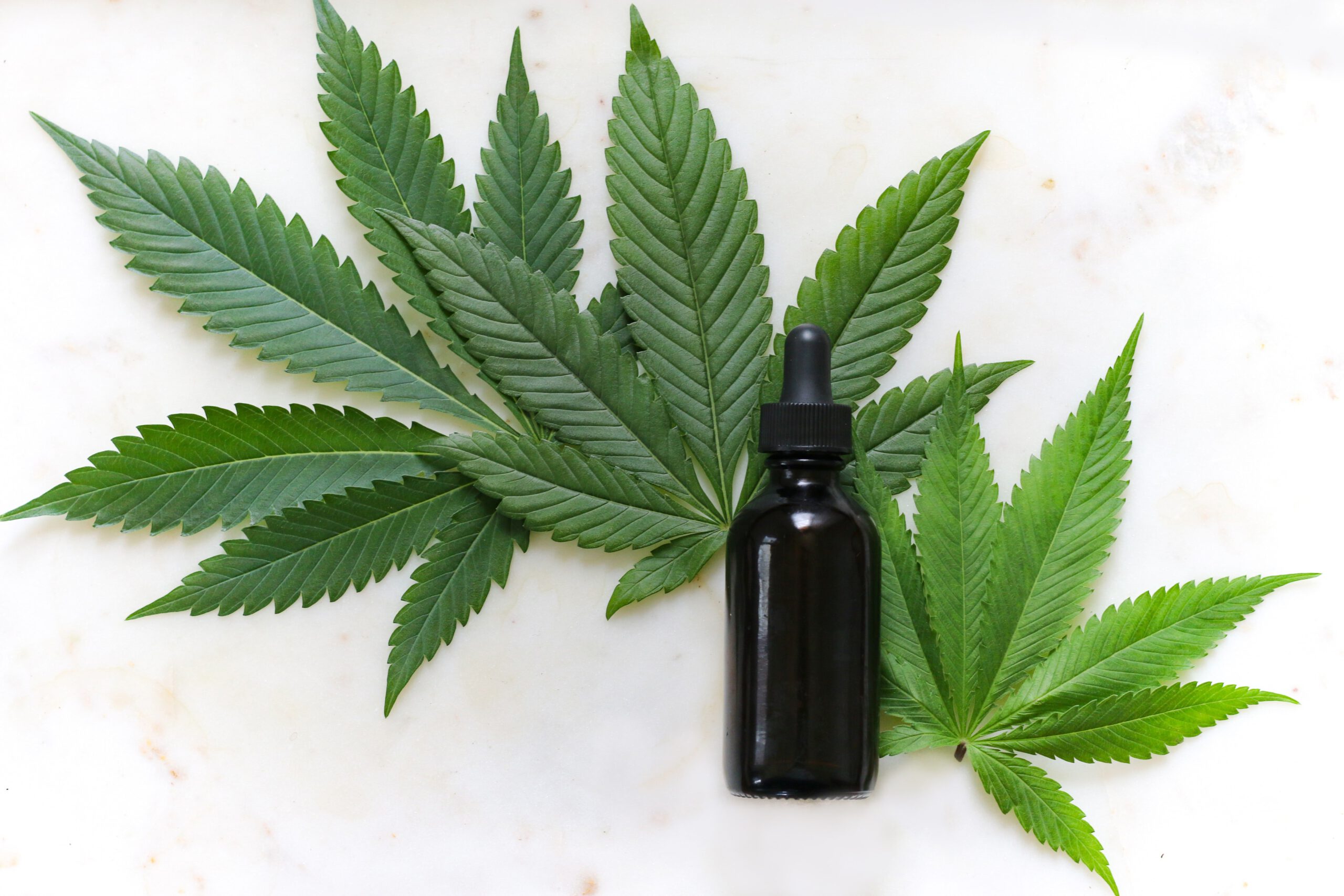Full-Spectrum Hemp Oil vs CBD
There are so many terms related to CBD that it can sometimes get a little confusing. One odd thing I noticed over the last year is that my favorite CBD gummies were suddenly marketed as containing “full-spectrum” or “broad-spectrum” hemp oil and mentions of cannabidiol or CBD significantly waned.
Did all of those CBD products I love change? What is full-spectrum hemp oil, anyway? I set out to investigate.
First, let’s clear up some CBD terminology
You are likely already aware of the difference between CBD, a cannabinoid taken from the hemp plant that contains a wide range of health benefits but zero intoxicating effects, and THC, which is the intoxicating (and also medicinal) compound. They are both strains of the same plant, Cannabis Sativa, but the main difference is that hemp has been bred to contain very little THC.
Then we have hemp seed oil, which is a wonderful oil by its own rights, especially in cooking or skincare, but it contains little to no THC or CBD.
So then, what on earth is full-spectrum hemp oil?
Derek Thomas, Vice President of Business Development at Veritas Farms, explains that (unlike the seed oil) full-spectrum hemp oil is extracted from the entire plant (and technically doesn’t count as an oil – it’s an extract); so, in addition to CBD, it also contains a wide range of other cannabinoids.
“There are many cannabinoids found in hemp. CBD, yes, but also CBG, CBN and CBC to name a few.” He says, “When you have all of the cannabinoids, terpenes and flavonoids working together as a team (unlike in CBD isolate products), they produce what is called the Entourage Effect.”
The specific phytocannabinoid makeup of full-spectrum hemp oil will differ from brand to brand, because these natural compounds exist in different concentrations in different plants. Full-spectrum hemp oil can include some THC, though legally it should never be more than the FDA limit of 0.3%, so it is not psychoactive.
Jeff Greene, the Florida Hemp Council‘s Co-Founder and Director of Business Development, notes that there are instances when even that tiny amount of THC can be a problem, and pure CBD might be preferred. “CBD is an isolated molecule. CBD Isolate is used when no THC can be found in a product. For instance, these products are marketed to pilots, first responders, truck drivers, etc.”
The Entourage Effect
The entourage effect is the term for the synergistic effect the different cannabinoids and terpenes (i.e. aromatic compounds) in the hemp plant have; or, in other words, it’s the idea that they work better when used together.
Originally, this process referred to the way the different cannabinoids (especially CBD) were able to temper the effect of THC. Nowadays, it also refers to the way they influence the human endocannabinoid system when little-to-no THC is present.
Quick reminder: The endocannabinoid system refers to the cannabinoid-like compounds that we naturally produce in the human body as well as the receptors that react to them. These receptors also react when cannabinoids come into the body from the outside, like from a full-spectrum hemp tincture. The endocannabinoid system is involved in a wide range of physiological processes
So did brands simply start using more full-spectrum hemp seed oil than before, or did something change?
Thomas thinks that companies have indeed shifted towards using more full-spectrum hemp oil. “The greater factors behind the increase in marketing of full-spectrum hemp oil are consumer and investor interest in the category.” However, there might also be more to it, and he thinks it is possible that sometimes full-spectrum hemp is marketed by brands instead of CBD as an attempt to navigate a challengingly ambiguous state regulation.
Greene also thinks regulation might have a part. The FDA is currently still exploring CBD regulations, and the language focuses on CBD as an isolate. “Due to having a currently approved drug that includes CBD, the FDA has determined that CBD is a drug ingredient,” he explains. “Due to the mass appeal of CBD and their limited enforcement capabilities, the FDA has focused on companies that make medical claims but that does not ease the industry’s concerns.”
This has led some brands to focus on full-spectrum hemp oil, perhaps mistakenly, and to avoid mentions of CBD in their products. Greene expects that there will be a change soon. “The FDA will eventually make a decision as to how to regulate CBD and hopefully the rest of the cannabinoids for nutritional or medical purposes.”
Tips for Choosing a Full-Spectrum Hemp Product
While full-spectrum hemp oil has become the more popular method for taking CBD, its complex makeup and the risk of mislabeling means that choosing the right product can be a little more complicated. In a worst case scenario, full-spectrum hemp oil can contain any number of harmful contaminants.
This is why Thomas recommends taking extra precautions, especially when it comes to ingestible formats of CBD. Before purchasing, look for a certificate of analysis from a third party, ISO certified lab, and make sure it matches the lot number of the product.
But what should you look for? “Make sure it tests cannabinoids, terpenes, pest/fungi/herbicides, heavy metals, mycotoxins, and residual solvents.”
When buying from reputable retailers, this information should be readily available on their website, so you can enjoy full-spectrum hemp oil while knowing exactly what is in it.


